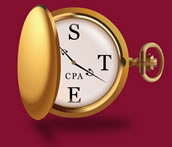One wrong move can increase your retirement tax bill.
RETIREES WHO PLAN carefully can often pay a lower tax bill in retirement. However, tax mistakes can have a dramatic effect on your finances when you’re on a fixed income. Poor or haphazard tax planning might actually move you into a higher tax bracket or result in you needlessly paying more taxes.
A first step might be to schedule a meeting or conference call with a financial advisor or tax advisor. “Tax planning is an ongoing process rather than a snapshot at the end of the year,” says Jeffrey Corliss, executive director at RDM Financial Group in Westport, Connecticut. “It’s better to know where you’re headed sooner rather than later and not be surprised at the end of the year.” Here are six tax tips that could save you money in retirement.
You May Be Able to Contribute to a 401(k)
If you continue to work, you may be eligible to save in a 401(k) for later on in retirement and defer paying income tax on that money. “Even though you are technically retired, you do have saving options,” says Christine Russell, senior manager of retirement and annuities at TD Ameritrade. “If you are retired but your spouse is still working or you are still working part time, it is still possible to make Roth IRA contributions. It won’t decrease taxable income today, but the growth will give you more income.” Only those who are under age 70 1/2 and have earned income can make contributions to a traditional IRA, but you can contribute to a Roth IRAregardless of your age if you meet the other requirements for the account.
Reduce the Tax Burden on Your Heirs
When leaving money to loved ones, remember to think about the taxes that will be due on each type of inheritance. For example, your heirs will owe taxes on money left to them in a traditional IRA, but not funds from a Roth IRA. Glen Smith, managing partner of Glen D. Smith & Associates in Flower Mound, Texas, says he has a 90-year-old client with significantly appreciated assets, and if she cashed in those assets she would be hit with significant taxes. Suppose she bought Apple stock at $10 a share and today it is trading at $250 a share. If she sold the stock before it passed to her heirs, she would be hit with taxes based on how much that $10 stock appreciated. But if the heirs instead received the actual stock, they would pay taxes only on gains above the $250 a share price, or the stepped-up basis. “We saved the lady hundreds of thousands of dollars,” Smith says.
Reduce Taxes By Gifting
If you plan to give some of your retirement savings to charity you may qualify for a tax break. For example, suppose someone invested $300,000 in stocks that have appreciated to $450,000. “When they donate the securities, they get to deduct the whole amount of appreciated assets, rather than selling, paying long-term taxes and then gifting it to charity,” Smith says. “It’s a better way of doing it than giving the charity the cash.
Prepare for State Taxes Before Moving in Retirement
Some states have a high income tax, while others don’t tax income at all. In addition, you have to watch for sales taxes. Five states have combined state and local sales taxes that exceed 9%, according to the Tax Foundation. Make sure you aren’t surprised by state taxes when you move to a new state. For example, if you leave a relatively high tax state like New York for someplace like Florida, which doesn’t have an income tax, and then later decide to return to New York to be closer to your grandchildren, your finances may be greatly impacted by the change in state taxes.
Remember to Take Retirement Account Withdrawals
After you reach age 70 1/2, you must take required minimum distributions from your retirement accounts each year to avoid tax penalties. Withdrawals from tax-deferred accounts will be taxed as ordinary income. “It will push taxable income up and maybe push you into a higher tax bracket,” Russell says. Take care to withdraw the correct amount to avoid a 50% penalty on the amount that should have been taken out of the account.
Consider a Qualified Charitable Contribution
Income tax is generally due on each required minimum distribution from your traditional IRA, but there is another option for retirees who might not need the income. “Go ahead and give it directly to charity (from your retirement account),” Smith says. “What’s powerful is it counts toward your RMD and doesn’t count toward your income.” You don’t have to donate the entire required minimum distribution. You can donate a portion of your required withdrawal and receive the rest in income.


Leave A Comment